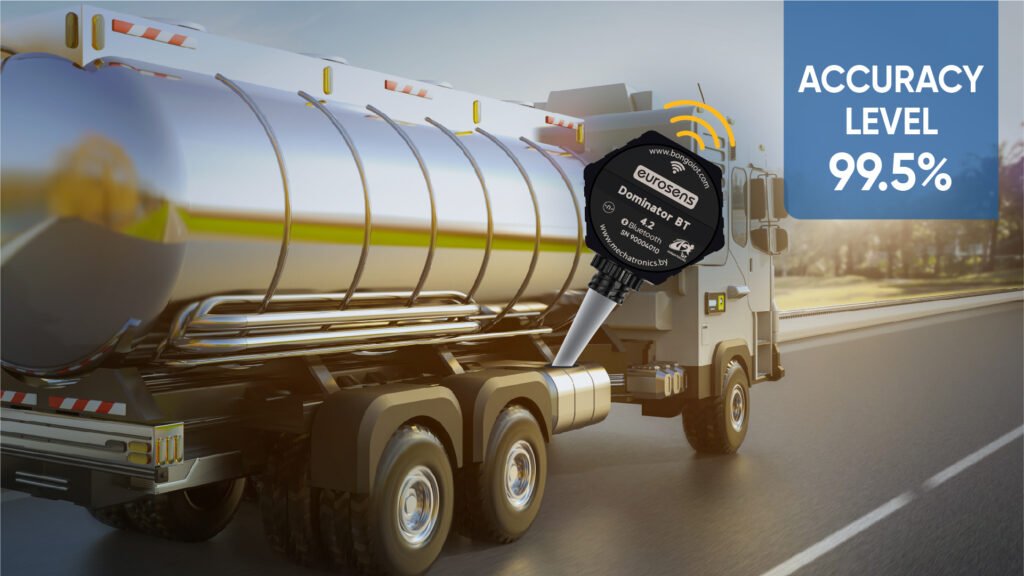
Client Profile:
Mymensingh City Corporation (MCC) is responsible for managing critical urban infrastructure, including water supply and distribution. They serve a rapidly growing city population, making efficient water tank operations crucial for meeting the water demands of residents and businesses.
Challenge:
MCC faced challenges in ensuring continuous water supply from their water tanks to meet the city’s needs. They needed a solution to monitor the work hours of water tanks, track fuel levels in backup generators, and optimize maintenance processes.
Solution:
MCC implemented an innovative solution by integrating fuel level sensors and Teltonika FMB 125 GPS tracking into their water tank operations.
Vehicle Details
Vehicle Name = Water Tank
Fuel Tank Capacity = 170 L
Implementation:
- Fuel Level Sensors: MCC installed fuel level sensors in the backup generators connected to each water tank. These sensors provided real-time data on fuel levels, ensuring uninterrupted power supply for water distribution.
- GPS Tracking Devices: GPS tracking devices were fitted on each water tank in MCC’s fleet. These devices enabled real-time tracking of water tank locations and movements across the city.
- Centralized Monitoring System: Data from fuel level sensors and GPS tracking devices were integrated into a centralized monitoring system accessible through MCC’s operations center. This system provided a comprehensive view of fuel levels, work hours, and tank locations.
Benefits:
- Reliable Water Distribution: With continuous power supply from backup generators, water tanks were always operational, ensuring consistent water distribution to residents and businesses.
- Efficient Maintenance: Tracking work hours allowed MCC to schedule maintenance based on actual usage. This minimized downtime and optimized maintenance activities, improving overall service reliability.
- Timely Refueling: Real-time fuel level data enabled MCC to monitor fuel levels remotely and schedule refueling proactively. This prevented generator failures and ensured an uninterrupted water supply.
- Route Optimization: GPS tracking helped MCC optimize water delivery routes, reducing travel time and fuel consumption, and ensuring timely water supply to different parts of the city.
- Emergency Response: GPS tracking enabled MCC to quickly locate and dispatch water tanks to areas affected by water shortages or emergencies, enhancing their response capabilities.
- Data-Driven Decision-Making: The centralized monitoring system provided valuable insights into water tank operations. MCC could analyze data to make informed decisions about resource allocation and infrastructure improvements.
Results:
The implementation of fuel level sensors and GPS tracking devices brought significant improvements to MCC’s water tank operations:
- Continuous Water Supply: Uninterrupted power supply ensures consistent water distribution, meeting the city’s demands even during power outages.
- Operational Efficiency: Efficient maintenance, timely refueling, and route optimization improved the overall efficiency of MCC’s water tank operations.
- Reduced Costs: Proactive maintenance and optimized routes resulted in cost savings for MCC, lowering maintenance expenses and fuel consumption.
- Enhanced Service Quality: The ability to respond swiftly to water shortages and emergencies improved the quality of service MCC provided to the city’s residents and businesses.
Conclusion:
By leveraging fuel level sensors and GPS tracking, Metropolitan City Corporation transformed its water tank operations into a well-coordinated, efficient system. This implementation led to a reliable water supply, reduced costs, enhanced emergency response, and improved overall service quality for the city’s residents. This case study underscores the importance of technology in ensuring the smooth functioning of essential urban services.
🌐Discover more
Visit at:
https://www.bongoiot.com/fuel-management
WhatsApp:
or,
Mail Us:
